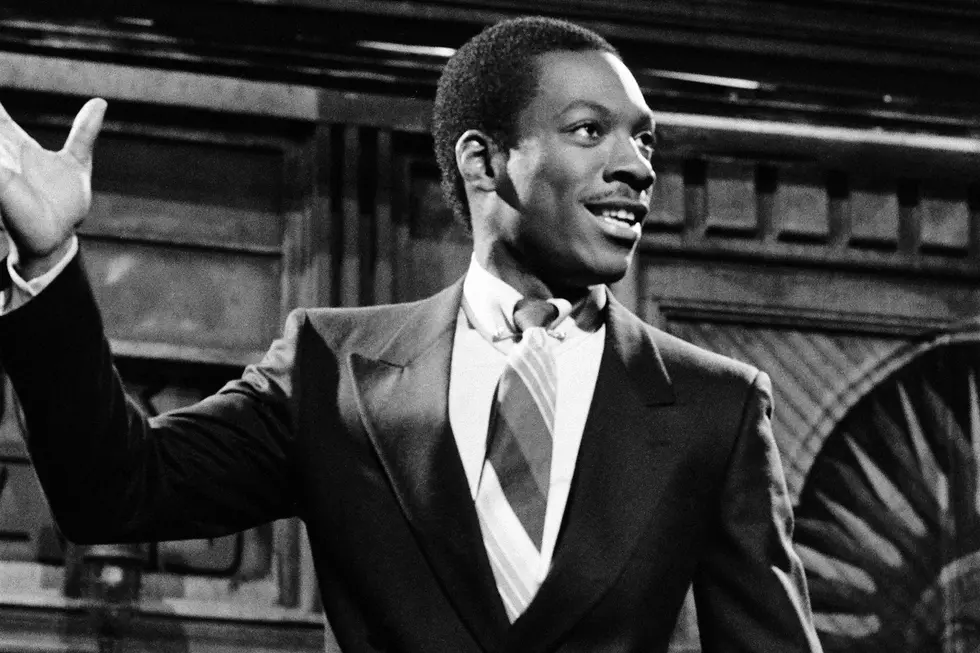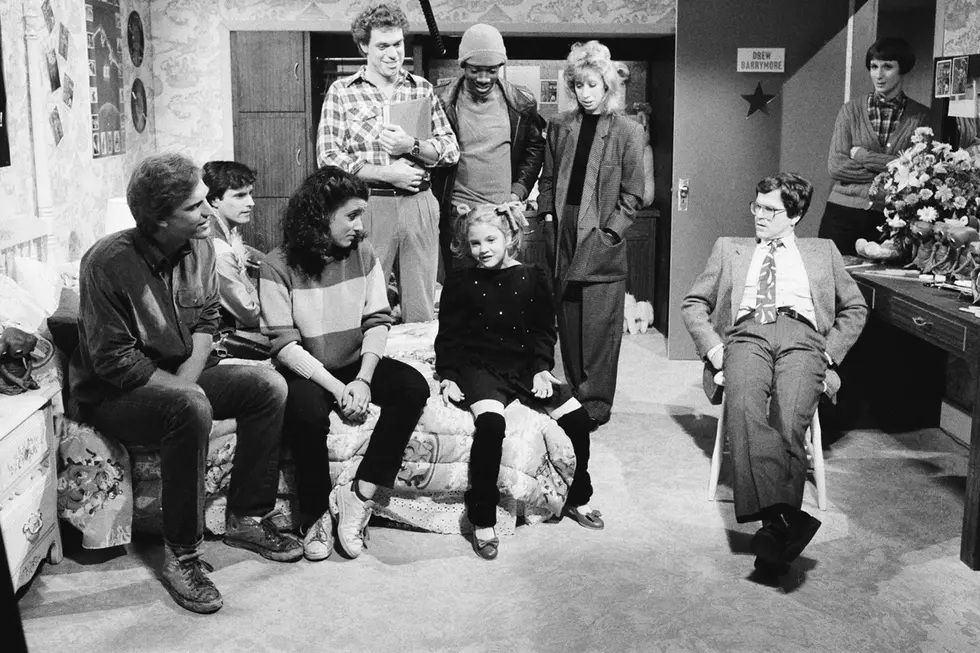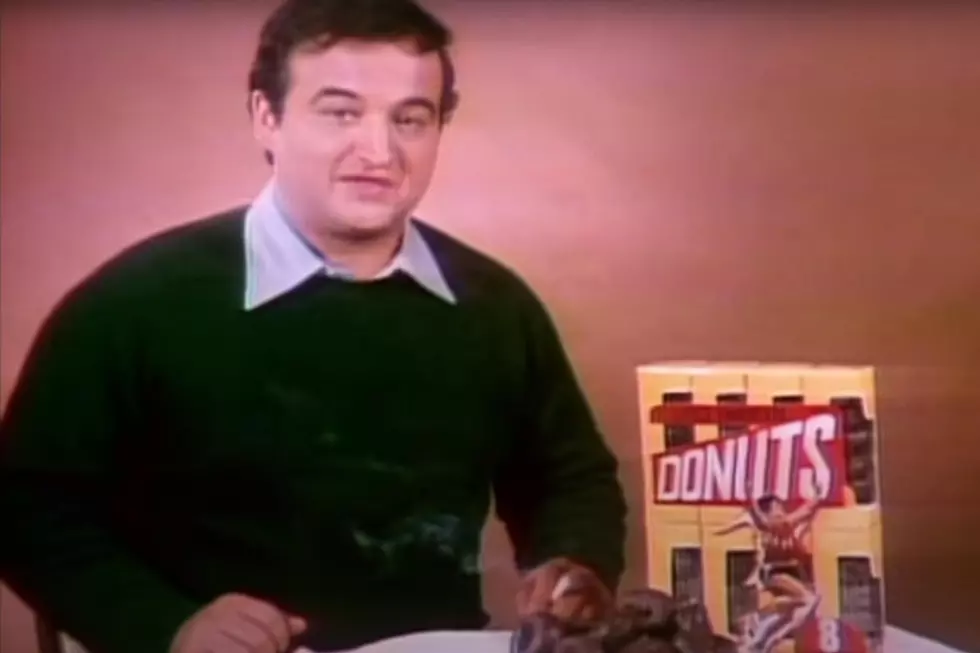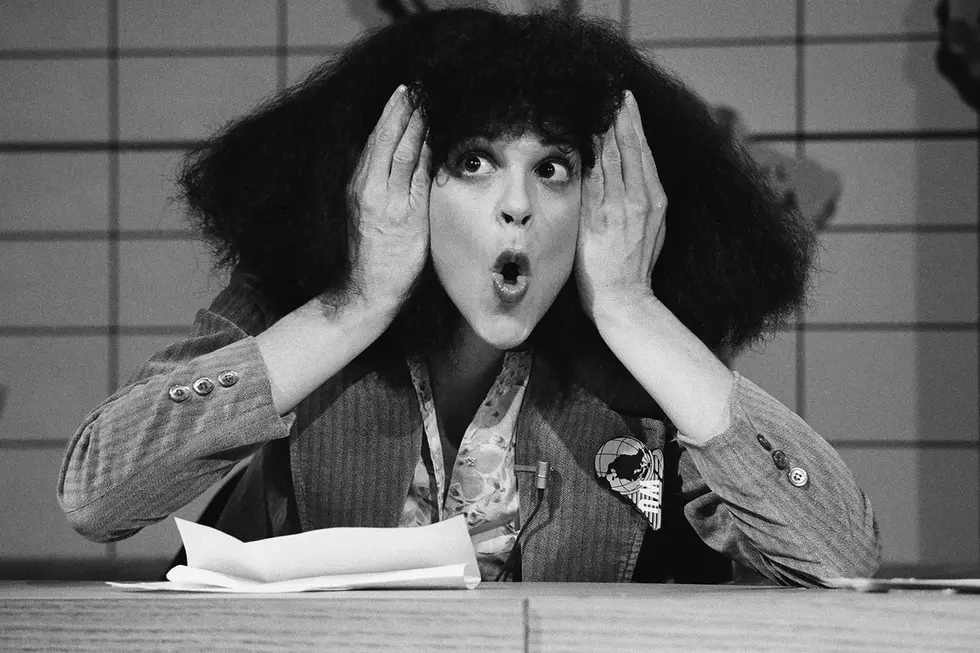
40 Years Ago: Eddie Murphy Rankles Cast by Hosting ‘SNL’
“Live, from New York, it’s the Eddie Murphy Show!”
The Dec. 11, 1982 episode of Saturday Night Live was supposed to be hosted by actor Nick Nolte, who was fresh off of the smash success of the action comedy 48 Hrs. Then Nolte reportedly partyed so hard in the week leading up to the show that he called then-producer Dick Ebersol on the Tuesday before airdate to beg off of the already-announced engagement.
“I’m going to ruin your show. … I’m burned, man,” Nolte told the flummoxed Ebersol, according to Doug Hill and Jeff Weingrad’s seminal history of SNL’s early years, Saturday Night. Various reports that Nolte was spotted celebrating at Studio 54 might have been in keeping with the infamously troubled actor’s unpredictable reputation, but it left Ebersol and NBC with just days to come up with a suitable replacement.
Ebersol was already struggling to maintain Saturday Night Live’s ratings and reputation in the years after original producer Lorne Michaels’ departure. He quickly came up with a brilliant, unprecedented, yet undeniably risky solution. After all, as good as Nolte was in Walter Hill’s gritty buddy-cop movie 48 Hrs., a real breakout star was right there in 30 Rockefeller Center – on Ebersol’s SNL cast.
So, when the cameras came on for that Season 8 episode’s cold open, Eddie Murphy addressed the crowd directly from a mockup of his dressing room. With a framed 48 Hrs. poster on the wall behind him, the then 21-year-old Murphy told the cheering audience that his screen partner had suddenly taken ill upon landing in New York: “He vomited on my shirt,” Murphy confessed.
Then for the first time, an active Saturday Night Live cast member would take over hosting the show. “I know you folks tuned in to see one of the stars of 48 Hrs. host the show – and, dammit, you’re gonna see it,” Murphy said to the crowd’s whooping delight.
He followed up with a quip about SNL becoming “the Eddie Murphy Show,” drawing even greater applause. Backstage, however, the whole idea was already making waves.
“It was a little hard to swallow,” stalwart SNL player Mary Gross says in Saturday Night. “We always knew he was a little more important, but this really said it.”
Watch Eddie Murphy Take Over 'Saturday Night Live'
Murphy had originally been hired almost as an afterthought by one-season producer Jean Doumanian two years earlier, then quickly graduated from little-seen featured player to guaranteed audience-pleaser. His string of original characters (Buckwheat, Gumby, Mr. Robinson, the convict-poet Tyrone Green, among many others) and innate charisma and comic fearlessness made Murphy more than just a fan favorite.
He'd made an easy transition to the big screen, becoming a superstar with the success of 48 Hrs. and his followup film Trading Places alongside former SNL star Dan Aykroyd.
Murphy's self-titled debut comedy album, released a month before Ebersol tapped him to host, had already gone gold. (That was despite outcry concerning Murphy’s homophobia, after he used a gay slur as the title for the first track.) Murphy’s actual dressing room sported an enlarged facsimile of the $1 million check he was given by Paramount Pictures to guarantee his continued involvement.
So the risk wasn’t that Murphy couldn’t handle hosting a show he was already essentially carrying on his back. Instead, it came in the form of the resentment and jealousy of those other Not Ready for Prime Time Players who’d been sharing the Studio 8H stage with Murphy for years.
Cross-currents of many careers come into play. There was likely little doubt in anyone on the cast’s mind that Murphy had eclipsed the ensemble, Gross’ comment outlines how the show was still being presented as an ensemble of more or less equal players. Now, with Ebersol habitually attuned to giving the people what they want, Murphy’s brash proclamation to kick off his hosting gig blew away whatever uneasy balance that ensemble had managed to attain during Murphy’s ascent.
Murphy co-star Tim Kazurinsky noted in 2005's SNL in the 80’s: Lost and Found that Murphy would routinely go to bat for his fellow cast members, despite his mounting fame. He urged Ebersol and the writers to include them in sketches, even when Ebersol was dedicated to flooding the show with as much Murphy as possible. Kazurinsky admiringly called the young Murphy “a mensch,” in how he tried to guard against being so overused.
That said, Murphy clearly relished the attention as a young superstar in New York with everyone from movie studios to record labels clamoring for his talents. There's a reason the Saturday Night chapter depicting the height of Murphy’s post-48 Hrs. stardom and behavior on the show is titled “The Elvis Phase.”
Watch Eddie Murphy's 1982 'Saturday Night Live' Monologue
The cast member who took Ebersol’s decision the hardest was actually Joe Piscopo. He reportedly complained for months afterward to the writers of Murphy’s cold open, Barry Blaustein and David Sheffield. (They’d go on to write future Murphy movie vehicles from Coming to America to Boomerang to the Nutty Professor films.)
Piscopo was in a wrenching position by that point. He and Murphy turned out to be the only cast members kept on after Doumanian’s disastrous run as producer, and the older and more experienced Piscopo became something of a mentor figure for the young and inexperienced Murphy. Often only Piscopo’s shtick regularly generated a sparse laugh or two on Doumanian’s infamously dire episodes, and Murphy was relegated to the bench. The duo became good friends, as well as adept comedy partners: Their loose, rambling portrait of old-time wino pals Solomon and Pudge remains virtuosic and understated after all these years.
Whatever problems there were on this night were sequestered backstage, as Murphy unsurprisingly shone. Ebersol’s run hasn’t aged particularly well apart from Murphy, and it’s really only Murphy’s bits that stood out.
We got his obstreperous Gumby affecting shock at holiday-special sibling singers Donnie and Marie Osmond making out mid-song, and a repeat appearance from his controversially effeminate hairdresser character, Dion. He also careened around the stage in a leotard in a sketch about “The Dance Theater for the Blind.” Then during the goodnights, Murphy repeated the “Eddie Murphy Show” line before longtime and frequent SNL host Steve Martin rushed the stage in a bit, complaining angrily about not being selected instead.
In the end, there was probably a bit less Eddie Murphy on “the Eddie Murphy Show” than SNL audiences were used to at the time, the most evident airtime bump coming from Murphy’s stand-up monologue. Either way, his star continued to rise, as Murphy found even bigger box office stardom in 1984’s Beverly Hills Cop.
Murphy would leave SNL right before the film’s release, returning to host the Dec. 15, 1984 episode with an inside joke: He pretended like the critical and commercial drubbing following his misbegotten interim movie comedy Best Defense had sent him begging for his old job back. Then a rift reportedly opened over a joke made at Murphy's expense by David Spade on Weekend Update led to a 35-year hiatus from anything to do with Saturday Night Live.
Murphy then made a triumphant return to hosting SNL in 2019. He brought back the old characters, and it was like the Eddie Murphy Show had never ended.
Original 'Saturday Night Live'' Cast: Where Are They Now?
Did ‘SNL’ Finally Confirm the Fifth Beatle?
More From Idaho’s Talk Station










